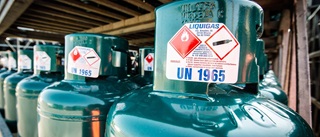Emissions from a variety of fuels
The study looked at emissions from a variety of fuels used in the heating sector, which plays an important role in the production of the air pollutant emissions that cause severe air quality issues in many Italian areas. There are frequent crises in the winter season as the heating plants add their contribution to traffic and industrial emissions.
The investigation was called “Comparative study of emissions from natural gas, LPG, gasoil and pellet appliances”. It was carried out with help from Innovhub (Stazione Sperimentale per l’Industria), a specialised company in research, test and chemical consulting on fuels, and well recognised by the Italian Authorities.
Comparing emissions from heating appliances
The main goal of the study was to compare the emission characteristics of Particulate Matter (PM), Carbon Dioxide (CO2), Nitrogen Oxide (NOx), Sulphur Oxide (SOx), and Polycyclic Aromatic Hydrocarbons (PAH) from domestic heating appliances fed with different fuels. We were particularly focused on the following items:
-
The experimental measurement of macro and micro pollutant emissions produced in condensing boilers fed with natural gas and LPG.
-
The determination of reference emission factors for all fuels in the heating sectors used in Italy (natural gas, LPG, gasoil, pellet, wood logs).
Sustainable products and maintenance are vital
The second stage of the study was a comparison of emissions from pellet stoves as a function of the grade of the stoves and pellet quality. It focused on the effect of aging and maintenance of pellet appliances on their emissions, as well as the effect on local air quality near the emission source.
All of these efforts help us to understand that solid biomass makes a strong contribution to pollutant emissions coming from the domestic heating sector. This is especially true when it comes to PM and B(a)P, even in the case of high-grade appliances. Proper and complete maintenance of biomass appliances, at least once a year, is therefore of fundamental importance to restoring original performance levels for the appliances, regardless of the quality of the fuel and the technological grade of the stoves.
These findings provide further confirmation about sustainability of our products. We have updated our brochure and are currently creating our marketing campaign accordingly.


 }
}
 }
}
 }
}
 }
}